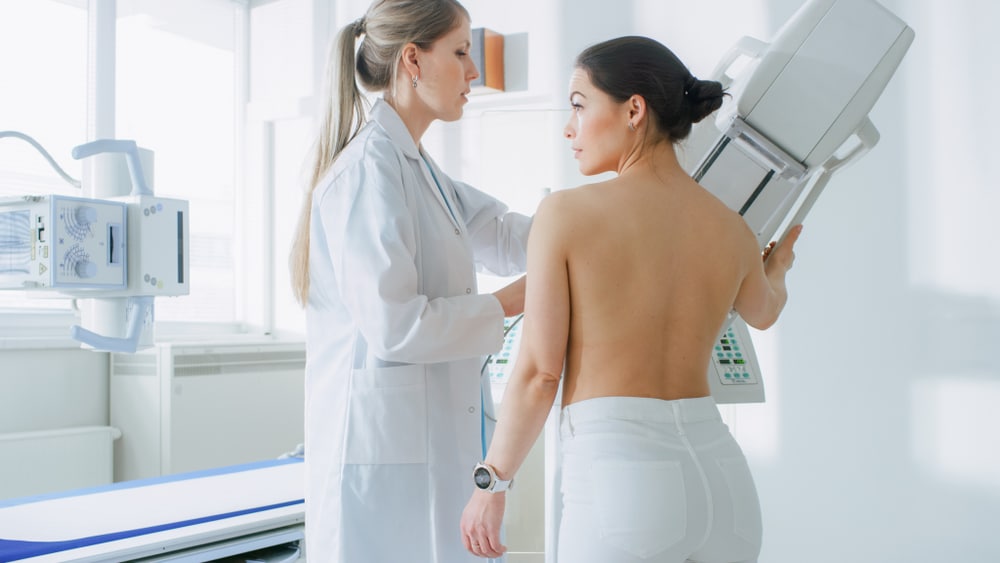While it’s appropriate to talk about and share the risk factors for various cancers that involve lifestyle choices, such as smoking, abusing alcohol, not exercising, and others, it’s also important to note the risk factors that certain people can’t ignore, and often are unaware of.
Having one or more risk factors for breast cancer does not guarantee that you’ll develop it in the future. However, knowing you’re at risk can entail changes to your routine medical care, and can result in more or more frequent tests in order to catch breast cancer at the earliest stage possible, should it develop.
Know the common risk factors to be an informed patient and take the appropriate steps with your medical care.
Getting Older
Although breast cancer has been found in women as young as 20, the majority of breast cancer cases are found in women over the age of 55. Age plays a role as a risk factor for many diseases and conditions, including breast cancer, which is why receiving adequate regular care is important as you get older.
Genetics
The cause of hereditary breast cancer stems from certain changes in a parent’s genetic code that gets passed down to their children. The most common gene change that’s linked to breast cancer is a mutation in the BRCA1 or BRCA2 gene. These genes code for proteins that normally repair damaged DNA, but the mutation stops this from happening, which can lead to abnormal cell growth and cancer.
Having a BRCA1 or BRCA2 mutation increases your risk of breast cancer substantially. On average, seven out of 10 people with this mutation will get breast cancer before they turn 80. It also increases your chances of getting breast cancer at a younger age.
Other genetic factors, some of which are genes that code for similar, DNA-repairing proteins, include mutations in the ATM, TP53, CHEK2, and PTEN genes. These can be related to specific disorders as well as an increased risk of breast and other cancers.
Genetic Cancer Screening
At Carnegie Women’s Health, we know how vital an accurate genetic screening can be for individuals and families in their journey toward health and wellness. During a cancer screening, our providers screen for an overview of basic cancer risks and can order genetic screenings if necessary to identify risk factors in your genes that may put you at a higher risk for developing various cancers in your lifetime.
We’ll work with you to understand the results of your screening, its implications on your lifestyle and medical care, and what next steps you may need to take. Cancer screenings are simple procedures that can have life-altering implications for you and your family.
Family History
A well-known indicator of an increased risk of breast cancer is having a family member with the disease. It’s worth mentioning that the majority of women who get breast cancer do not have a family history, but this still increases your risk by double or more when the family member is a mother, sister, or daughter.
Personal History
Sadly, people who develop one type of cancer are often more likely to develop another one in the future. This is true for breast cancer as well, where the cancer appears in the other breast or a different part of the same breast, as distinct from recurrence of an earlier cancer.
Race and Ethnicity
In certain age groups, breast cancer occurs in higher rates among specific demographics. In women under 45, African American women are more likely to have breast cancer. Overall, however, breast cancer is most prevalent in White women.
Height
Research has shown that, for unclear reasons, people who are taller than average have a higher risk of breast cancer than shorter people. This may be due to factors in early stages of growth, such as nutrition, as well as hormonal or genetic factors.
Breast Tissue Density
Breast tissue is comprised of fat, fibrous tissue, and glandular tissue. They are classified as more dense when they have less fatty tissue and more fibrous and glandular tissue. Breast density can change due to a variety of factors, and women who have denser-than-average breast tissue can be up to two times more likely to develop breast cancer.
Benign Breast Conditions
In addition to previously having breast cancer, certain non-cancerous conditions can increase a woman’s chance of developing the disease. These include fibrosis, cysts, adenosis, fat necrosis, or other tumors, like lipoma and hemangioma.
Early Menstruation
People who have had more menstrual cycles due to starting menstruation early are more likely to develop breast cancer, perhaps due to a longer exposure to certain levels of estrogen and progesterone.
Late Menopause
Similar to the causes for early menstruation risk factor, women who have extended exposure to hormones due to having menopause late in life (after age 55) are at a higher risk for breast cancer.
Radiation Therapy
Those who have received radiation therapy to the chest, due to treatment for conditions like non-Hodgkin lymphoma are at a higher risk for breast cancer. The risk from radiation is most pronounced when this radiation is performed at a young age.
Cancer Screenings and Wellness at Carnegie Women’s Health
Learning the risk factors both in and out of your control can help you strategize an effective cancer treatment strategy with you and your doctors. Our providers can test for risk factors for breast and other cancers to help you make informed decisions about your personal medical care and wellness. Schedule a consultation with our cancer geneticists by calling 315-628-7063 or filling out a contact form online today.

